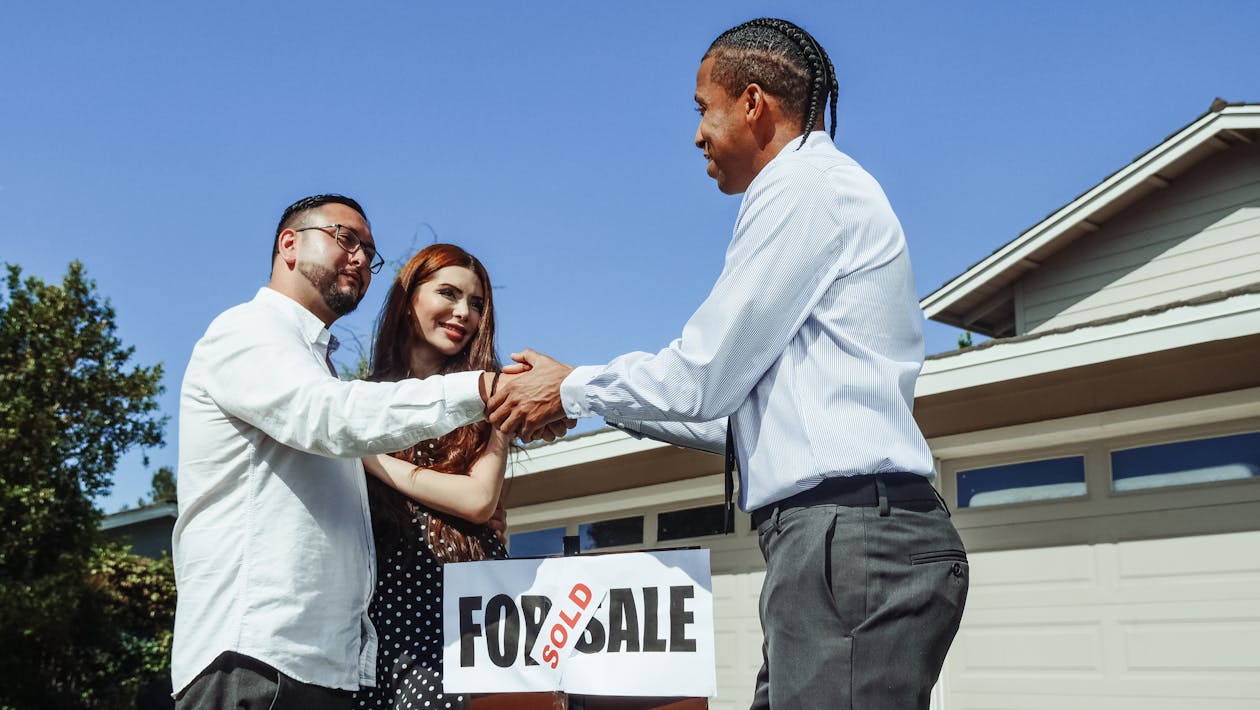Renting vs. Buying in Utah – Important Factors to Consider

Alt.tag: A person holding house keys to another person
Utah’s real estate scene has witnessed an undeniable surge in housing demands in recent years, driven by its vibrant economy and the allure of its picturesque landscapes. This surge in popularity has brought the age-old debate of Renting vs. Buying in Utah to the forefront. For many, the Beehive State offers a perfect mix of scenic beauty and urban charm, driving a steady demand in its housing market. Recognizing the crucial differences between the two is more than just a financial decision; it’s about aligning with your life goals and aspirations. As we explore the nuances of Utah’s housing market, we must be conscious of the factors influencing renting and buying decisions. Whether you’re keen on flexibility or seeking long-term stability, Utah’s housing landscape offers choices that cater to diverse needs.
Financial Feasibility: Crunching the Numbers
Understanding the financial side of housing is pivotal in Utah’s dynamic market. For potential buyers, there’s the initial hurdle of upfront costs. The median home value hovers around $510,000, and traditionally, a down payment of 20% would mean shelling out more than $100,000 upfront, not including closing costs, which range from 2% to 5% of the home’s purchase price. On the other side of the spectrum, renting might appear more affordable, with the average rent in Utah being approximately $1,800 per month.
Furthermore, homeowners often face property taxes, insurance, and maintenance expenses, whereas renters might only need to budget for renter’s insurance and utilities.
On the other hand, buying a home in Utah can be seen as an investment, given the steady appreciation in property values. Renting doesn’t offer the same equity-building opportunities. Balancing immediate costs with future gains is key to making an informed decision.

Alt.tag: A realtor shaking man’s hand
Caption: Owning a house grants control over the whole property and its expenses.
Flexibility vs. Stability: What Lifestyle Do You Envision?
Renting presents a distinct advantage in terms of flexibility. The ability to relocate with relative ease is a significant draw for those who value variety and change.
On the contrary, buying house offers a stable haven and a more rooted lifestyle. Ownership signifies a commitment to a specific community, providing a sense of belonging and familiarity. Consistent monthly payments grant homeowners control over housing expenses.
Contemplate your 5-10 year life plan. Are you seeking the thrill of new horizons and novel experiences, or do you yearn for stability? Evaluating your aspirations and long-term goals will be pivotal in making a decision that aligns seamlessly with the lifestyle you envision for yourself.

Alt.tag: Banknotes and calculator on the table
Caption: If you’re renting a property, it there’s a chance to secure a cheaper space when property values go low.
The Role of the Market – Timing is everything
Timing takes center stage when considering renting and buying within Utah’s dynamic real estate landscape. Renting holds an upper hand during market downturns when property values experience a dip. It provides a window of opportunity to secure a rental space at a potentially lower cost, allowing you to manage your finances more efficiently.
On the other hand, buying a property holds its own set of timing considerations. Professionals at Best Cross Country Movers recommend keeping a watchful eye on the market for those instances when it tilts in favor of buyers. They note that during such phases, you might find properties at competitive prices, granting you a chance to make a valuable investment.
Furthermore, favorable interest rates can sweeten the deal, making homeownership a more financially appealing prospect. Stay informed about the market trends, and seek advice from real estate professionals.
Equity Building: The Power of Ownership
The concept of home equity stands as a compelling argument for ownership. It signifies the stake of value you own in your property, growing over time as you make mortgage payments and your home appreciates. This equity can serve as a financial haven, offering opportunities to fund future endeavors or as a safety net during unforeseen circumstances.
On the renting side, tenants don’t accumulate equity in the property, which means they miss out on the potential wealth accumulation that homeownership can offer. Additionally, rent costs may increase over time, whereas homeowners often benefit from a fixed mortgage payment, providing a sense of stability. Deciding between renting and buying involves long-term investment considerations. While renters might enjoy more immediate flexibility, homeownership can translate into a strategic financial move in the long run.

Alt.tag: A dog on a concrete road
Caption: When there’s decision to make like renting vs. buying in Utah – consider the communities and resale value.
Renting vs. Buying in Utah: Local Communities
The decision between renting and buying a property in Utah hinges on various factors, and perhaps none is as crucial as the location itself. Proximity to work and amenities like essential services, shopping centers, and recreational spots can elevate your living experience.
For families, evaluating school districts is vital. The quality of education and available extracurricular activities can influence your children’s growth and development.
Keep an eye on future development as well. New infrastructures and projects can breathe new life into an area, potentially boosting property values. Speaking of which, consider the resale value of your potential home. The neighborhood’s stability, safety, and amenities contribute to its desirability in the long run.
One thing is sure. Here, you are sure to find a perfect home tailored to your needs, whether your choice leans towards renting or owning a home. If you decide to move to Utah from another state and you find yourself searching interstate movers, seek adequate assistance. Entrusting your move to adept professionals guarantees a seamless and stress-free transition
Contractual Obligations: Reading the Fine Print
Renting vs. Buying in Utah: both come with their own set of intricate agreements that have far-reaching implications. Here’s a closer look at the contractual intricacies that demand your attention:
- Rental Agreement Clauses: Renters should meticulously review typical rental agreement clauses, encompassing security deposits, lease duration, and pet policies.
Mortgage Terms: Familiarize yourself with interest rates, loan duration, and repayment structures. This is one of essential factors to consider when buying a home.
- Potential Early Termination Fees: Both renters and homeowners must comprehend the potential costs associated with early termination. Renters might face penalties for breaking a lease, while homeowners might encounter fees for refinancing or selling prematurely.
- Contractual Duration and Escape Clauses: Renters need to know when their lease can be renewed or terminated, and homeowners should be aware of any penalties for selling before a certain period.
Conclusion
As you stand at the crossroads of renting vs. buying in Utah, the crux of your decision lies in aligning it with your unique blend of personal and financial goals. Recognizing that this choice encompasses not only monetary aspects but also emotional and lifestyle considerations is vital. Remember, you don’t have to navigate this intricate decision-making journey alone.
Seeking professional advice from a financial advisor, real estate agent, or housing expert can provide invaluable insights to help you make an informed choice. Their expertise can shed light on nuances you might have missed and assist in makeing a well-rounded and reflective decision of your circumstances.
Meta Description: Explore key factors when deciding between renting vs. buying in Utah. Make an informed choice that suits your needs and financial goals.
Focus Keyphrase: Renting vs. Buying in Utah
